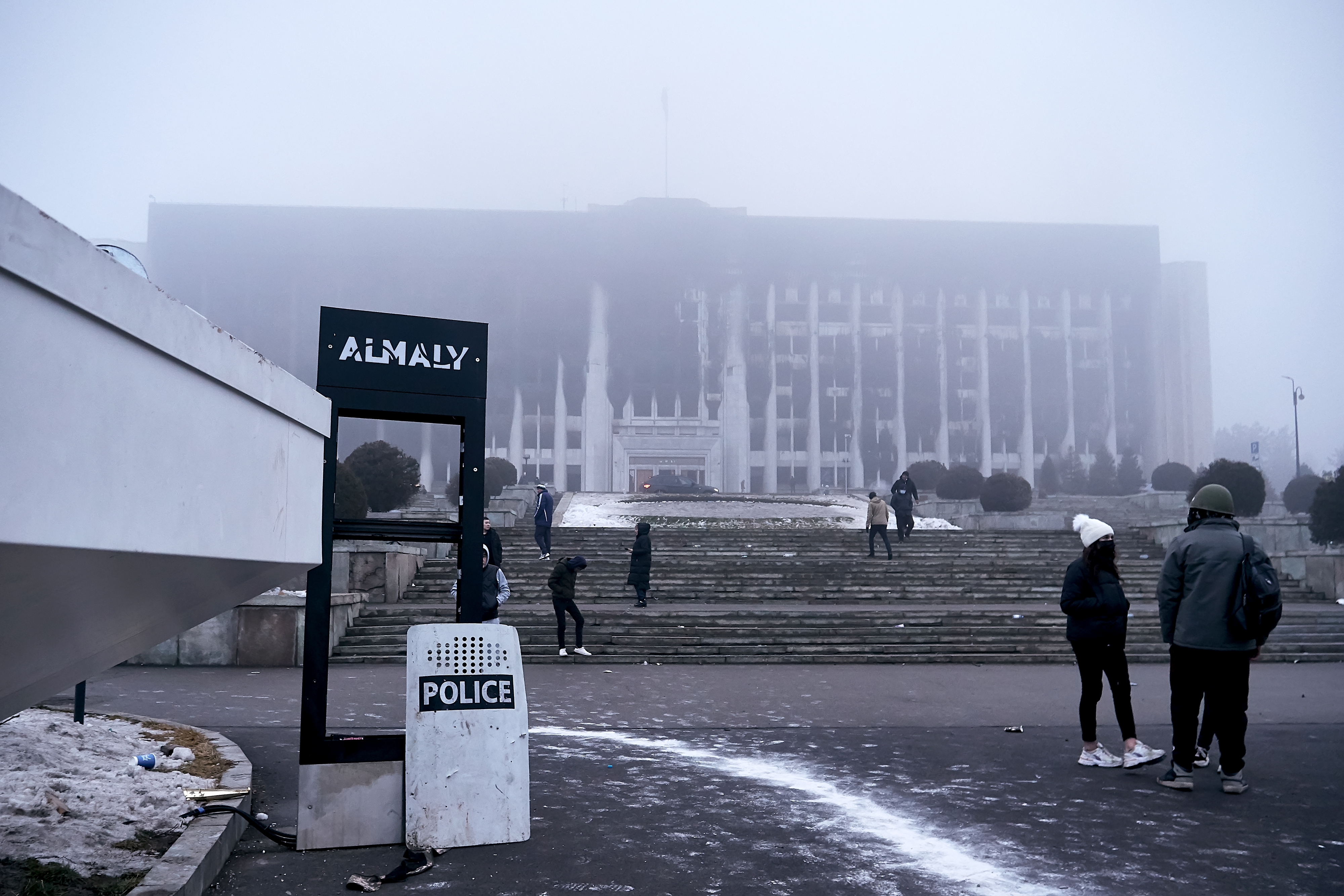The entire elite, which owns and runs the country, is being marched out and nobody knows quite what's going to come next
Ben Godwin
Associate Director, Prism
Kazakhstan has adopted increasingly draconian laws on protests. In May 2020, the IBAHRI, the International Commission of Jurists and the Centre for Civil and Political Rights sent a jointly endorsed expert opinion to President Tokayev’s office to voice concern that the government’s proposals to restrict freedom of assembly were in violation of international human rights norms.
As misinformation since the unrest threatens to obscure egregious human rights violations, Zhovtis is concerned that a law that criminalises peaceful expression of critical views is unduly targeting innocent civilians and journalists on social media platforms. ‘There are some cases where people have been brought to justice without even participating or only because of discussing the opportunity to organise, or need to organise a protest,’ he says. ‘This is how this law is working.’
Although expropriation risk remains high, Godwin welcomes Tokayev’s renewed pledges to ‘de-oligarchise’ the country, including the creation of a new fund to incentivise the country’s elite to invest in Kazakhstan instead of spreading their wealth overseas. ‘It's giving the oligarchs a way of demonstrating their support for the president,’ he says.
Godwin believes this policy shift marks a critical juncture for the country: ‘A lot of the senior elite that have blocked genuine reforms for the economy, that have really stopped the economy functioning the way it should – which has hammered living standards, has prevented the development of human capital in the country and bled the state dry of resources – a lot of these people are going to leave. They could be replaced by another set more loyal to Tokayev, or we could see some genuine change.’
Rashid Gaissin, partner and head of the Central Asian desk at Armstrong Teasdale and chair of the British Kazakh Law Association, says investors would be prudent to adopt a ‘wait and see’ approach. ‘I assume many investors will carefully analyse the current situation,’ he says. ‘It is too early to say that the confidence is ‘knocked’. In my personal view, the investors in natural resources and energy tend to [have] ‘iron nerves’, work globally and have long-term views on the risk and reward.’
Reassuring foreign investors and the international community will be challenging. The UN, the European Parliament and numerous human rights organisations have already called for an international investigation into allegations of excessive use of force by the Kazakh security forces during the unrest.
Zhovtis is hopeful the pressure of an impartial inquiry could also prompt the government to review the country’s anti-terrorism and law enforcement laws. However, he acknowledges that international efforts to investigate earlier clashes – including the fatal events in Zhanaozen in December 2011 – failed to gain any traction.
‘We have not managed to conduct an impartial investigation into the turbulent events of 2011, in spite of the pressure and calls from the UN Human Rights Commissioner, the Human Rights Council and the UN Human Rights Committee,’ says Zhovtis. At least 15 people were killed and more than 100 injured in the western oil town when police opened fire on striking workers after months of peaceful protest.
Dozens of workers, union leaders and protesters were later convicted for their role in the violence, but the authorities prohibited an independent investigation into the situation. On 29 January, in an interview with state broadcaster Khabar, Tokayev said he saw no ‘need’ for an international probe into the latest unrest.
Image:Nick Melinichenko/Shutterstock.com

